Have you ever been asked if you want an indica or sativa when at the cannabis dispensary? Perhaps someone has asked if what you are consuming is indica or sativa based? It is a common question when it comes to cannabis and one that many people can struggle with. This blog will present some basic information about sativa cannabis to help make answering that question a little bit easier. Read on to get to know a little bit more about cannabis sativa.
 Keep in mind that the terms indica and sativa often mean more for growers and cultivators than they do consumers. If you are looking for a pure indica strain you can ask at your local dispensary, or even try to grow some of your own. The system of indica, sativa, or hybrid is the only system the cannabis industry currently has to classify different strains. There can be some different effects from different strains, however, with all the different breeders, names, and nicknames out there it can be difficult to truly separate them. As the cannabis industry has expanded growers have learned how to breed different strains together to create the effects they want.
Keep in mind that the terms indica and sativa often mean more for growers and cultivators than they do consumers. If you are looking for a pure indica strain you can ask at your local dispensary, or even try to grow some of your own. The system of indica, sativa, or hybrid is the only system the cannabis industry currently has to classify different strains. There can be some different effects from different strains, however, with all the different breeders, names, and nicknames out there it can be difficult to truly separate them. As the cannabis industry has expanded growers have learned how to breed different strains together to create the effects they want.

What is Indica?
Cannabis indica and cannabis sativa are both types of cannabis and can be found in many different cannabis products. One of the main differences between the plants is their appearance, and time in cultivation. The two can also have differing effects. A general rule of thumb in the cannabis industry is that Indica strains provide a calm relaxing “body-high,” while sativas tend to be more of a cerebral, “mind high,” and are stimulating rather than relaxing, this should be taken with a grain of salt, as there has been a lot of cross-breeding and hybrid strains cultivated over the last few decades. Contrary to what many people believe, indica and sativa cannabis plants are not separate species. While they appear different from one another in terms of what many refer to as “appearance,” both indica and sativa grow equally well indoors or outdoors. Indica cannabis plants tend to grow shorter and bushier than other types. Their leaves are typically broader with shorter petioles. Indicas produce more resin than other cannabis strains, which gives them their characteristic sticky texture.- Cannabis will have different effects on each person, regardless of strain. Both strains will cause psychoactive effects due to cannabinoids.
- Tetrahydrocannabinol (THC) is a cannabinoid that stimulates a positive mental feeling, euphoric effect. It is the chemical compound that causes a high feeling. The higher the level of THC the
- Cannabidiol (CBC) is a cannabinoid that is non-euphoric meaning it does not cause the mental high THC does. CBD is used to manage a variety of medical conditions and is known for its use in helping alleviate pain.
- Cannabis can be taken in many forms. It is commonly smoked, vaped, eaten, used in oils and tinctures, used topically, in pill form, and more.
- Indica plants grow short and wide, with broader leaves that are often dark green in color with light-colored pistils (hairs) growing from the buds.
How does an indica high feel?
Indica is known for its strong body high and sedative effects. It is often used to manage pain, anxiety, and insomnia. Indica strains are also known for their relaxed and euphoric effects, which can make them a great choice for social events. An indica high can feel very relaxing and euphoric. It is often described as a ‘couch-lock’ high, meaning you will likely want to stay put on the couch. Indica strains are great for winding down after a long day or for helping manage pain or anxiety. Indica strains are often used for their medicinal properties, as they can help manage conditions such as pain, anxiety, and sleep disorders.What can indica be used for?
Indica can be used to manage several conditions, including:- Pain
- Anxiety
- Sleep disorders (insomnia)
- Inflammation
- Muscle relaxation
How to Identify Indica Strains
Indica cannabis plants tend to grow shorter and bushier than other types. Their leaves are typically broader with shorter petioles. Indicas produce more resin than other cannabis strains, which gives them their characteristic sticky texture. An indica strain like Hindu Kush will deliver what many consumers refer to as “couch-lock” because it induces what many describe as powerful sedation. This type of full-body relaxation is what makes indica ideal for nighttime use, especially if consumers are looking to combat symptoms like chronic pain or insomnia. Many growers will cross their favorite indica strain with a sativa strain to achieve what they believe to be the best of both worlds. An indica/sativa hybrid like Blue Dream delivers what many consumers refer to as an “in-your-head” psychoactive high combined with what people refer to as a powerful body relaxation. This combination makes it ideal for daytime use when consumers are looking for relief from what is often described as a “mind and body high.” Remember that cannabis is a very personal experience. What one person prefers is not necessarily going to be enjoyable for another. Even smoking, eating, or otherwise consuming the exact same plant can be a unique experience for each person. Always keep in mind that at some level indica and sativa labels may be more geared toward marketing than they are true reflections of the cannabis strain.Some popular indica strains to keep an eye out for:
- Grandaddy Purple
- Blue Cheese
- Northern Lights
- Purple Punch
- Grape Ape
- Blueberry
- Hindu Kush
- Afghan Kush
- Bubba Kush
- Critical Kush
- Purple Kush
- OG Kush
 Keep in mind that the terms indica and sativa often mean more for growers and cultivators than they do consumers. If you are looking for a pure indica strain you can ask at your local dispensary, or even try to grow some of your own. The system of indica, sativa, or hybrid is the only system the cannabis industry currently has to classify different strains. There can be some different effects from different strains, however, with all the different breeders, names, and nicknames out there it can be difficult to truly separate them. As the cannabis industry has expanded growers have learned how to breed different strains together to create the effects they want.
Keep in mind that the terms indica and sativa often mean more for growers and cultivators than they do consumers. If you are looking for a pure indica strain you can ask at your local dispensary, or even try to grow some of your own. The system of indica, sativa, or hybrid is the only system the cannabis industry currently has to classify different strains. There can be some different effects from different strains, however, with all the different breeders, names, and nicknames out there it can be difficult to truly separate them. As the cannabis industry has expanded growers have learned how to breed different strains together to create the effects they want.
How Do Cannabinoids Affect Indica Strains?
Cannabinoids play a crucial role in understanding cannabinoids and their effects on Indica strains. These compounds interact with the body’s endocannabinoid system, influencing various physiological processes. Indica strains, known for their relaxing and sedating effects, are often high in THC, the primary psychoactive cannabinoid responsible for inducing these calming sensations.

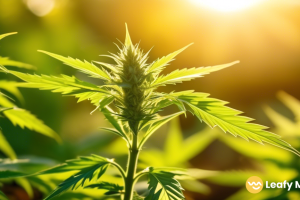
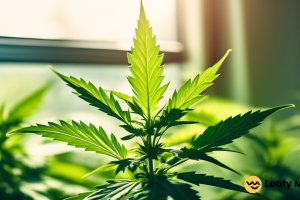
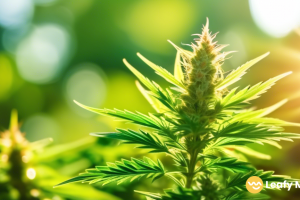




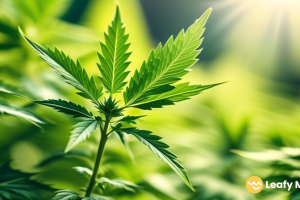
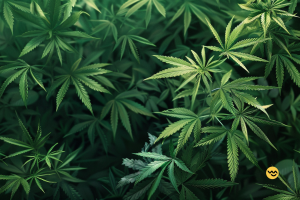
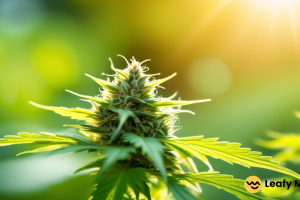
Leave a Reply